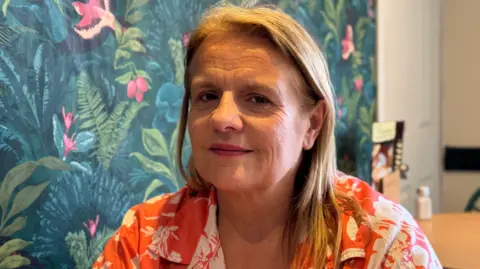In an alarming account, Samantha Panton, the owner of Roasters, a historic family-run cafe in Tamworth, has expressed her dire concerns about the financial impact of a staggering £24,000 energy bill, which she attributes to alleged disputes with her energy supplier, E.On. This situation has escalated to such an extent that Ms. Panton described enduring sleepless nights because of what she perceives as “bullying tactics” used by the energy giant in their pursuit of payment.
E.On has reportedly threatened to take Ms. Panton to court and sever the electricity supply to her establishment, which has been operational for over 33 years. Ms. Panton believes that the hefty charge is unjust, stemming from a technical malfunction with her electricity meters that have been in place since 2017. In response to these serious allegations, E.On maintained its stance, insisting that their calculations were accurate while stating their readiness to assist in managing the cafe’s account balance.
Ms. Panton’s distress intensified when she encountered debt collectors who came to her cafe in early 2024 while it was bustling with customers and staff, demanding immediate payment. The incident left her feeling overwhelmed, stressing not only the potential closure of her business but also the emotional toll it took on her and her family. She recounted her feelings of stress, embarrassment, and the emotions connected with the potential ruin of their family enterprise. For her, Roasters is not merely a business; it represents the livelihood of her family, while to E.On, it seems to be just another account in arrears.
In a fortunate turn of events, the potential for legal action diminished when Tamworth’s MP, Sarah Edwards, became involved in May of the previous year. Ms. Edwards expressed her outrage over the manner in which Panton was treated, calling on the energy ombudsman to implement more stringent penalties against inaccurate billing practices. In her remarks to a parliamentary committee, she noted that without her intervention, Ms. Panton’s business could have faced bankruptcy, leading to job losses for the local constituents.
Despite the involvement of Ms. Edwards, the conflict remains unresolved. Ms. Panton indicated that an accountant suggested her café’s account might even be in credit. Meanwhile, E.On asserted that the energy ombudsman declared the billing valid and there was no identified technical issue with Ms. Panton’s power meter. The energy firm claimed to have made ample attempts to communicate with Ms. Panton, expressing their commitment to facilitating proper repayment arrangements and addressing her ongoing energy consumption and outstanding balance.
The account of Ms. Panton isn’t an isolated incident. Paul Chrimes, a blind piano tuner from Wolverhampton, shared his ongoing battle with E.On, claiming that the company has been billing him on the basis of estimated readings rather than actual meter measurements, a method he deemed unacceptable. He stated that his complaints often go unanswered, and having found the responses frustratingly small and unclear, he stopped paying his bills.
Dr. David Toke, an energy expert based in Solihull, suggested that this pattern of treatment by energy firms indicates a broader systemic issue, where profit takes precedence over customer service and support. He called for public ownership of energy companies to ensure fair practices and accountability in billing for all consumers, especially those facing billing discrepancies.
E.On’s past mistakes in billing practices have caused them to face criticism and financial liability, including a multi-million pound compensation for failing to return account credits to vulnerable clients over a specific period. In light of the ongoing challenges and disputes faced by Panton and others, the company reiterated its commitment to resolving these issues, offering support to customers needing assistance with their energy accounts.
Overall, the situation paints a broader narrative of the energy industry’s challenges, reflecting the emotional and operational struggles faced by small businesses like Roasters, and highlighting the urgent need for reforms within the sector to prioritize ethical service and accountability.











